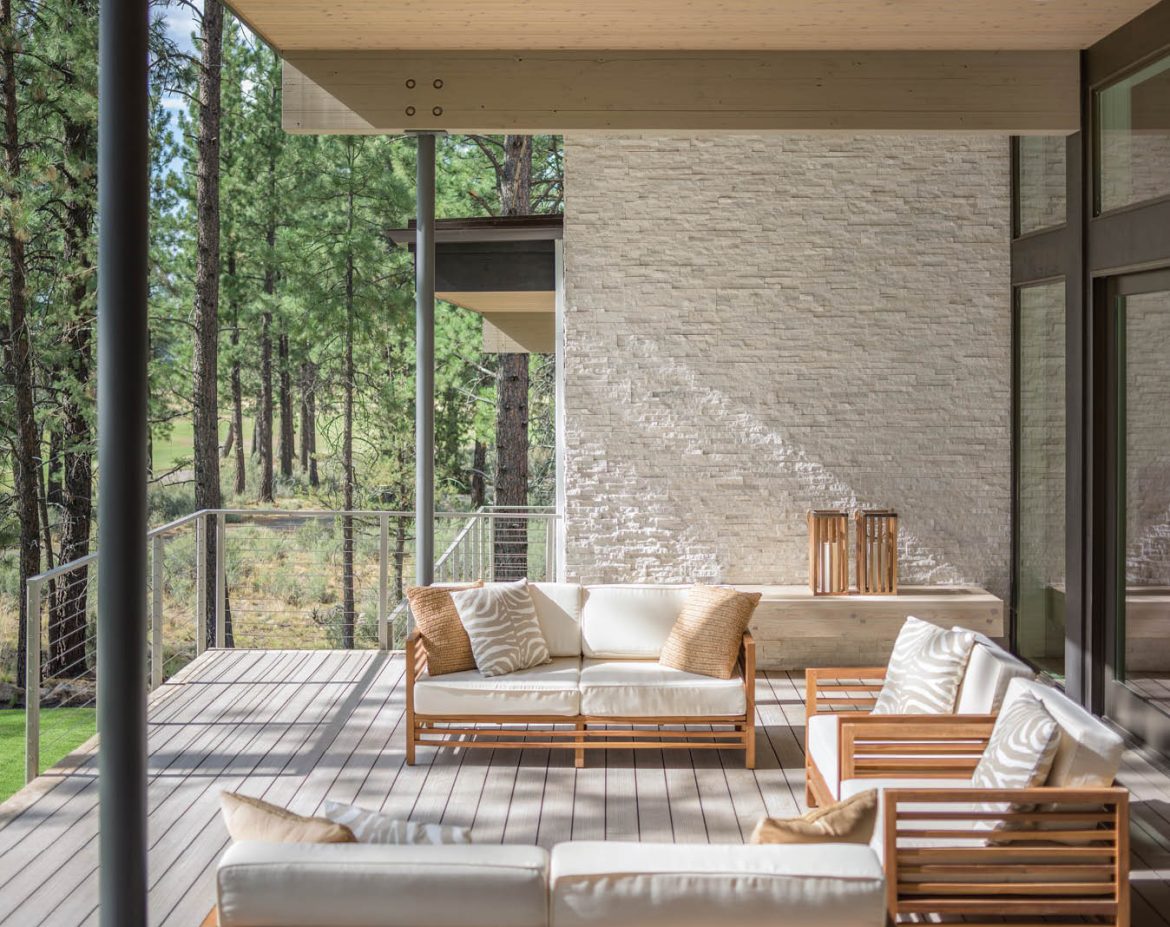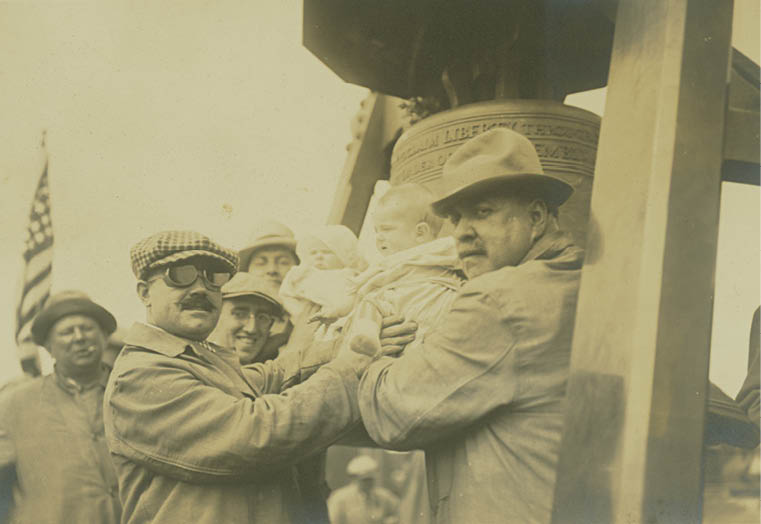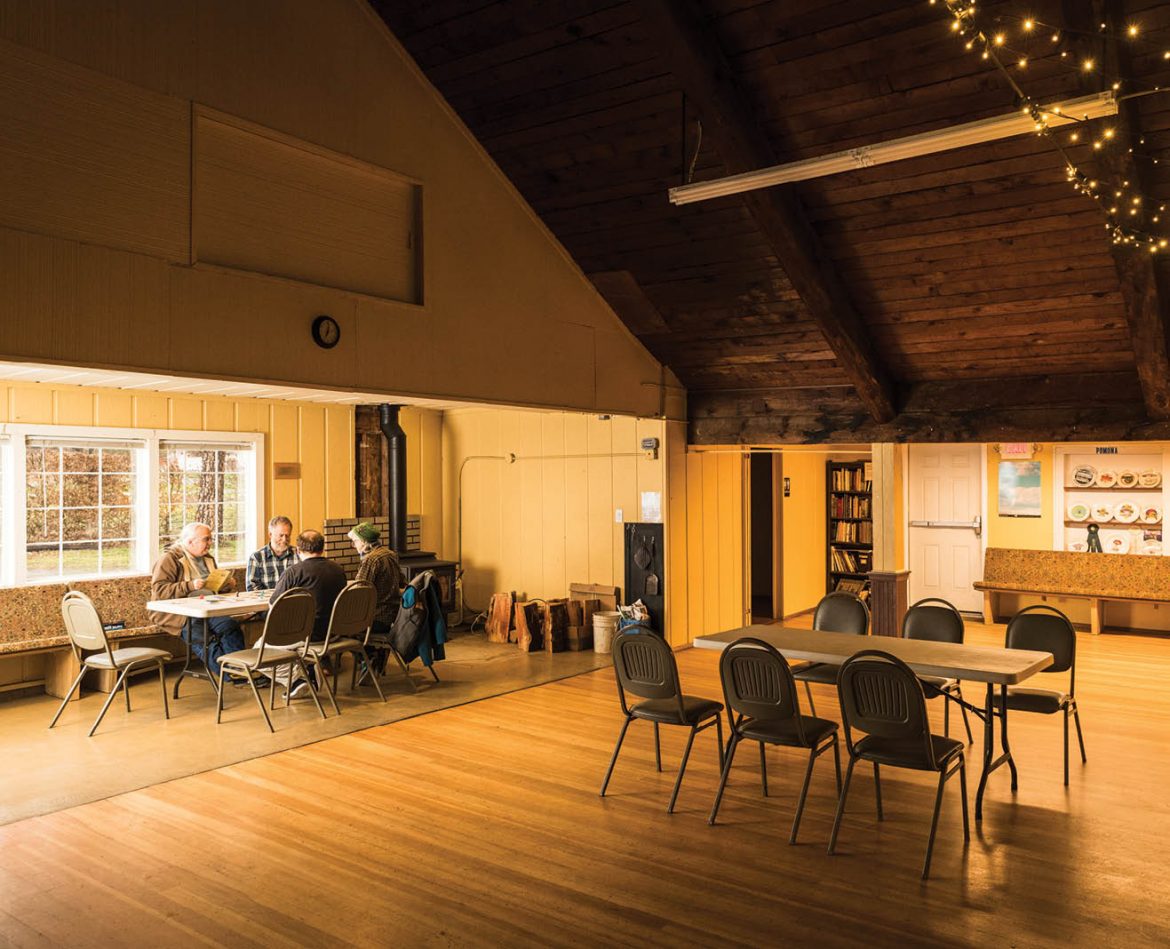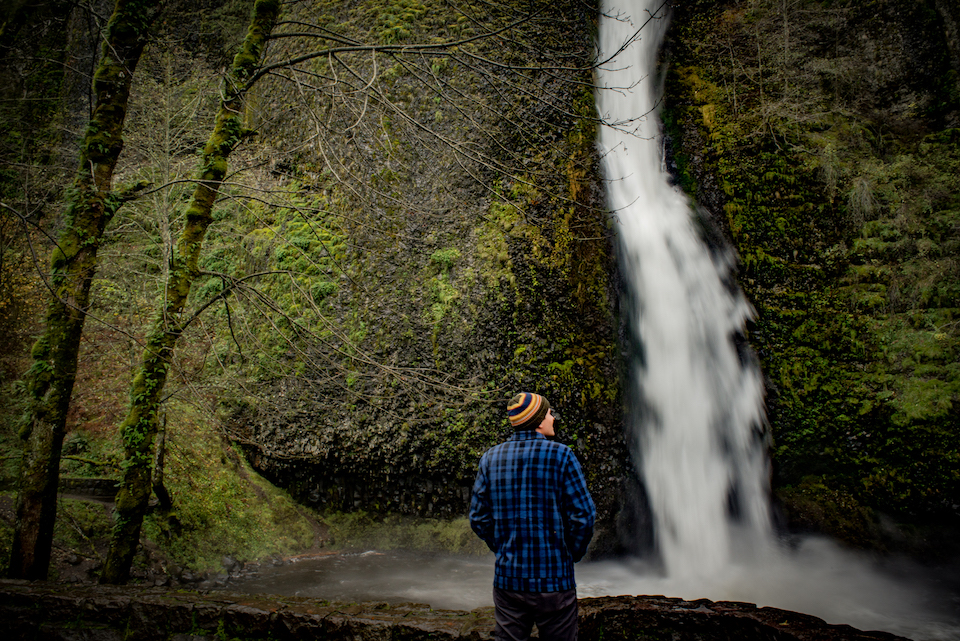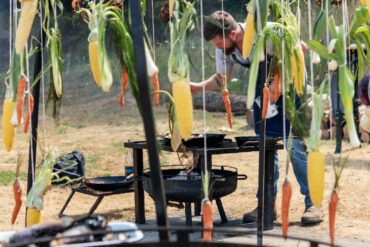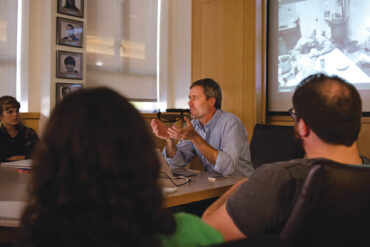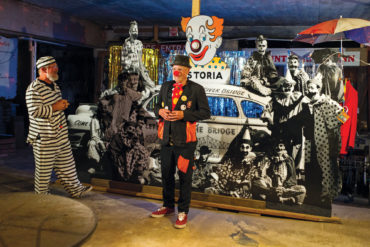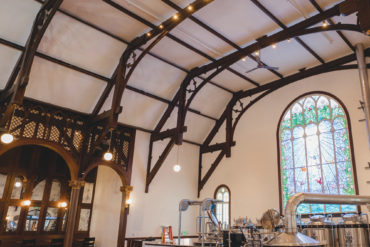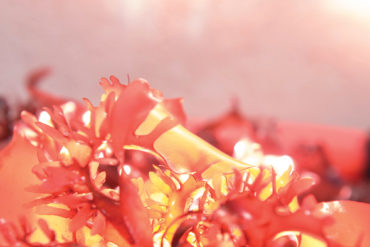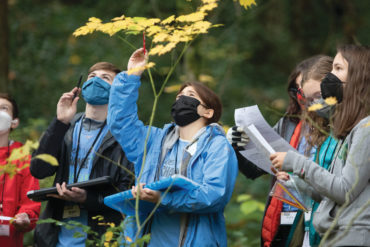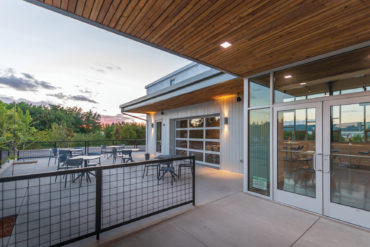Tournant: Dreams on Fire
A couple’s foray into community building through ancient cooking techniques written by Joni Kabana photography by Aubrie LeGault During both of their childhoods, Mona Johnson and Jaret Foster spent a lot of time in the great outdoors growing and eating bountiful food choices. While a natural progression for both of them was ending up working in professional kitchens, they also both shared a dream of creating a more immersive dining experience. In 2009, the couple met and bonded over their love of food, farms, nature and community building while working at Portland Farmers Market, a nonprofit organization that organizes various farmers’ markets. They began to formulate a plan centering on a new way of cooking that would engage and inspire both themselves and their guests. Tournant, their open-fire cooking and events company, was born out of this shared vision. Tournant’s signature offering is an unparalleled outdoor dining experience using farm-to-fire…






